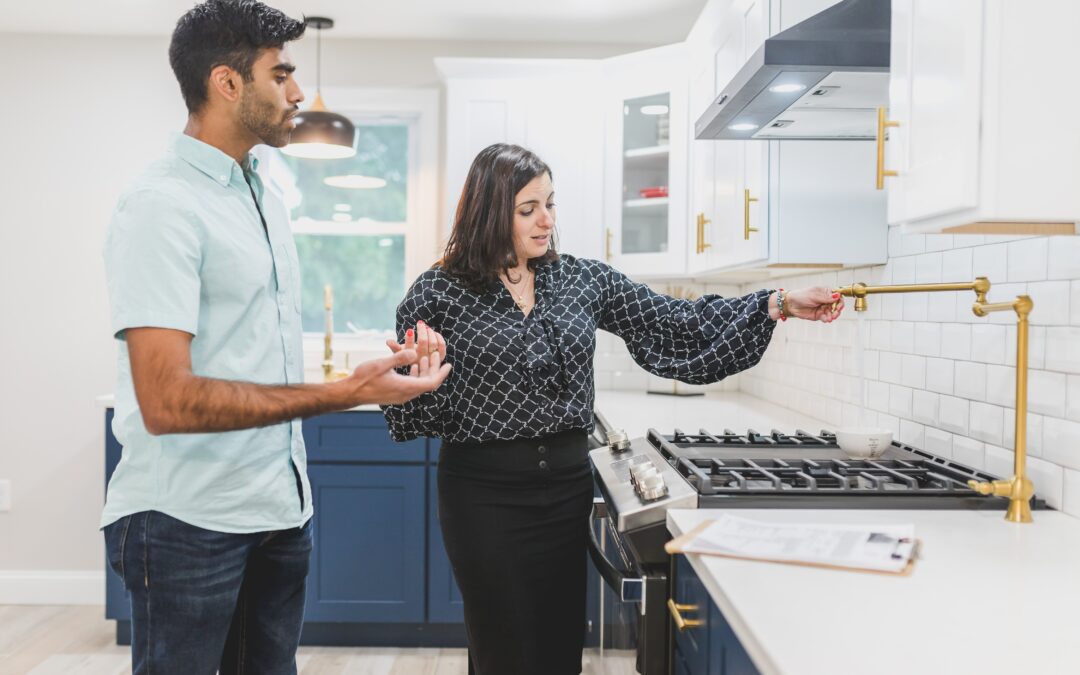If you are ready to purchase a house but do not have much saved, a low deposit home loan can help you make the dream of home-ownership a reality.
Low deposit home loans are an increasingly popular option for borrowers with steady income but little in savings. Borrowers may be first home buyers or those looking to buy an investment property but with restricted savings. Many people think that you need at least a 20% deposit to get a home loan. But some lenders will approve qualifying borrowers for a low deposit home loan with as little as a 5% or 2% deposit (subject to lender’s credit policies and Government selection criteria).
What is a low deposit home loan?
A low deposit home loan is a standard home loan for borrowers without a large deposit saved. Traditionally, a bank would provide a loan of up to 80% of a home value (LVR), with the buyer expected to contribute the remaining 20% deposit. But 20% is no small figure: It takes time to save up that much, and life can get in the way. The good news is that today there are many loan options available and custom lenders understand that a borrower is capable of making home loan repayments even if they do not have a 20% deposit.
So depending on the lender and your circumstances, you could potentially get a low deposit home loan with a deposit as small as 5%. The Australian government introduced First Home Guarantee Scheme (FHBG) that allows first home buyers to purchase property with a 5% genuine savings. There are 35,000 spots available per calendar year, and you can only get a loan approved with the participating lenders of the scheme. There are two more schemes available for Regional First Home Buyers (RFHBG) with 10,000 post and Family Home Guarantee (FHG) with 5,000 spots per calendar year. So it is crucial to speak to your local mortgage broker to find out your options and suitability. You can read further information about each scheme in details at NHFIC website.
Can a first home buyer get a low deposit home loan?
First home buyers often take out low deposit home loans because they have not accumulated significant savings. Australian states and territories offer various first homeowners grants and stamp duty exemptions or concessions to help eligible first-time buyers to buy a property with relatively small deposits. Some lenders may also accept gifted deposits for first home buyers. The reality is that many first-time borrowers get financial support from family members. However, not all lenders that offer low deposit home loans will accept gifted deposit monies. The more traditional lenders require evidence that the deposit has been saved consistently over time – usually over a minimum of at least three months. It assures the lender that the borrower can responsibly pay regular loan repayments once the loan is in place. If you are renting through a registered Real Estate Agent, you can use the rental history as genuine savings with some lenders.
What are the costs of a low deposit home loan?
A low deposit home loan typically represents a higher risk to the lender because the borrower only contributes a small amount of their own money. For this reason, borrowers must pay a once-off premium called Lenders Mortgage Insurance (LMI). The borrower pays LMI to protect the lender if the borrower cannot repay the mortgage and the property is sold below market value when selling it. The sale price does not sufficiently cover the entire loan amount, including any accrued interest and costs. The LMI provider will then seek to recover any shortfall from the borrower. Depending on the loan amount and property value, LMI can cost thousands of dollars. Not great if you only have a 5% deposit to contribute. The good news is that lenders will allow you to add the cost of the LMI premium into the low deposit home loan. That way, you do not have to use your savings to fund this expense, and you can pay it over time. Different lenders set different criteria, so it is essential to research and find a lender who provides this feature. FHGS can save you on LMI because you can borrow up to 90% LVR (value of the property) without paying LMI if you are qualified. It is vital to speak to your mortgage broker to find out your eligibility.
Can I get a no deposit home loan?
In Australia, all lenders must adhere to responsible lending requirements to avoid putting a borrower into an unsuitable loan that creates unnecessary hardship. Lenders consider borrowers who can show vital savings behaviours less likely to default and put themselves in trouble. For this reason, lenders in Australia tend not to offer “no deposit” home loans. However, for borrowers who are asset rich but do not have available cash for a deposit, a deposit bond can help. The deposit bond guarantees that you will provide 100% of the price to the vendor on settlement.
Can I get a low deposit low doc home loan?
If you are self-employed and do not have all your financial documentation available, you may qualify for a low doc home loan. Lenders that offer low doc home loans will accept alternative income verification methods such as bank statements, business activity statements or an accountant’s letter instead of completed tax returns. However, most low doc home loans will require a higher deposit closer to 20-30% of the property price.
How to get a home loan with a low deposit
Here is how to get a low deposit home loan in seven steps.
- Start saving create a consistent habit of putting aside regular savings each pay cycle. Remember, when it comes time to apply for a loan, providing evidence that you can responsibly manage money will help your loan application.
- Research what government help is available. If you are a first home buyer, you might be eligible for government aid. Support for first home buyers varies between each state or territory. It may be that in your area, a government grant is only available for newly constructed homes or up to a specific price point. It is also worth exploring any stamp duty exemptions or concessions available.
- Work out how much you can borrow with a low deposit home loan. Your deposit amount will often determine how much you can borrow. However, your income will also contribute to your loan amount, setting the budget for your home hunting. Many handy online calculators can help you work out your borrowing capacity based on how much you earn.
- Contact a trusted mortgage broker. Contact a trusted mortgage adviser or mortgage broker if you only have a small deposit and are unsure which lenders offer low deposit home loans. They will guide you through the loan options available to you based on your savings, income, and employment history. They will also suggest any government help you may be eligible for when applying for the loan. At this stage, you want to get pre-approval for the desired loan amount before you start looking at properties.
- Find a home or investment property work with a real estate agent to find an ideal home or investment property that you can afford. Be sure to make an offer subject to finance. Your lender will need to approve the property before providing you with any unconditional loan approval.
- Provide any extra information requested. Do not worry if your lender asks for additional supporting information before providing formal loan approval. It is common, especially if it has taken you a long time to find that perfect property. The lender may ask you for an updated pay slip or savings statement to confirm you can still take on the loan.
- Sign the required documents and settle on your low deposit home loan. Once formally approved for a low deposit home loan, all parties will need to sign loan documents. Take time to read these carefully. Your lender will give you a copy of the loan contracts for you to store in a safe place for future reference. Once your lender has confirmed that all your documents are in order, they will arrange a date to settle with the seller. Then, all you need to do is organise to pick up the keys and move in!
How do I compare low deposit home loans?
Many comparison websites allow you to compare the interest rates, features, and requirements for various loans, including low deposit home loans. It is important to remember that the cheapest interest rate on the market may not necessarily be the best loan for your circumstances. When looking for a low deposit home loan, you also want to consider the loan features available, whether it can add any loan costs to the loan, and the lender’s track history. A mortgage broker will present a minimum of three lender comparisons with a recommended lender.
Do I need a broker to get a low deposit home loan?
A trusted mortgage broker can help take the stress out of the home buying process – whether you are a first home buyer or an experienced investor. If you seek a low deposit home loan, a broker can help you find a loan that works for you and your long-term financial strategy. A good mortgage adviser should be able to give examples of how other customers have rated their performance. You can trust your mortgage broker to look after you. A mortgage broker has a responsibility to serve you with best interests duties which is a positive outcome for all consumers. After all, buying a property is a big step and not something you do every day!
To discuss your home loan needs, contact ASA Mortgage Brokers today to book your FREE consultation appointment.
The information is a compilation from various sources for your benefit and should not be relied upon instead of appropriate professional advice. This article is prepared based on general information. It does not consider individual financial objectives or needs and is not financial product advice, and the content quoted from Liberty Financial Blog.

